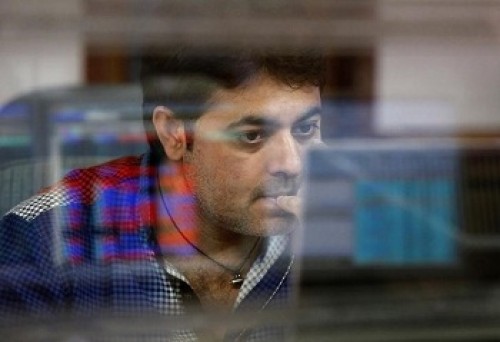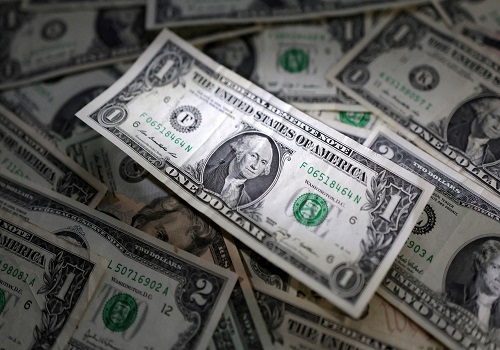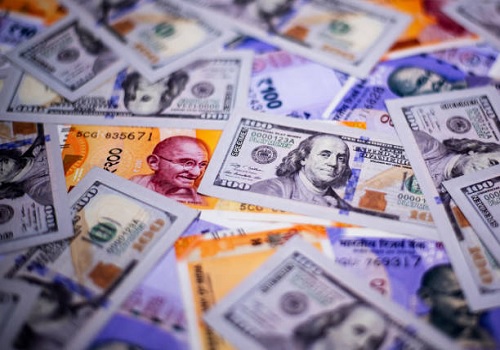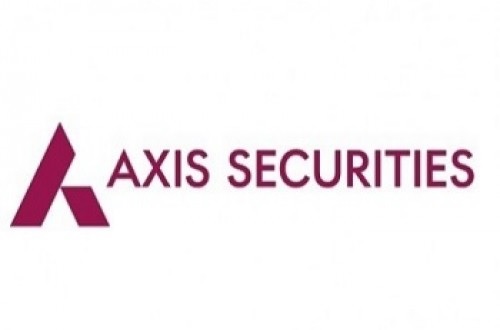Benchmarks end in red on Wednesday

Follow us Now on Telegram ! Get daily 10 - 12 important updates on Business, Finance and Investment. Join our Telegram Channel
Indian equity benchmarks ended in red on Wednesday in line with tepid global markets as inflation and recession fears continued to hurt sentiment. Markets made gap-down opening as continued selling in FIIs weighted on market sentiments. Foreign institutional investors (FIIs) sold shares worth a net Rs 1,244.44 crore on June 28. Some cautiousness came in with a private report that after a gap, the prices of select varieties of pulses have started rising for the past few days due to a delay in the onset of the southwest monsoon over major growing regions of Madhya Pradesh, Maharashtra, and Gujarat. Some concerns also came after the Reserve Bank of India (RBI) in its latest data has showed that the growth in Scheduled Commercial Banks (SCBs) deposits moderated to 10 per cent year-on-year in March 2022, compared to an increase of 11.9 per cent a year ago. During 2021-2022, current, savings and term deposits rose by 10.9 per cent, 13.3 per cent and 7.9 per cent, respectively.
However, key gauges trimmed most of their losses in late afternoon deals, as traders took some support as Union Minister Bhanu Pratap Singh Verma emphasised the Micro, Small & Medium Enterprise (MSME) sector's important role in making India a $5-trillion economy and said that the government will remove all the barriers in credit flow to this sector. He also said that the government was also committed to develop a better system of redressal and debt facilities. Some support also came as the GST Council approved changes in tax rates on some goods and services while allowing states to issue an e-way bill for intra-state movement of gold and precious stones.
On the global front, European markets were trading lower as a cautious undertone prevailed ahead of a speech by European Central Bank President Christine Lagarde at the Sintra forum, alongside Federal Reserve Chairman Jerome Powell and Bank of England Governor Andrew Baile. Asian markets settled lower on Wednesday following the broadly negative cues from Wall Street, after weak US consumer confidence data stoked fear among investors about the risk that higher interest rates and persistent inflation could trigger a recession. A survey showed a measure of U.S. consumer confidence deteriorated to its lowest level in over a year in June on surging inflation.
Back home, telecom stocks remained in watch as the telecom department issued rules for enterprises setting up Captive Non Public Network (CNPN), stipulating a minimum net worth of Rs 100 crore for applicants seeking direct assignment of spectrum from the government. Select port industry stocks remained in focus with a private report that the government will strengthen capacity and technology at state-owned ports to make them competitive against their private peers.
Finally, the BSE Sensex fell 150.48 points or 0.28% to 53,026.97 and the CNX Nifty was down by 51.10 points or 0.32% to 15,799.10.
The BSE Sensex touched high and low of 53,244.84 and 52,612.68, respectively. There were 10 stocks advancing against 20 stocks declining on the index.
The broader indices ended in red; the BSE Mid cap index fell 0.70%, while Small cap index was down by 0.18%.
The top gaining sectoral indices on the BSE were Power up by 1.63%, Utilities up by 1.54%, Energy up by 0.87%, Oil & Gas up by 0.57%, Auto up by 0.34%, while Bankex down by 1.20%, IT down by 1.02%, FMCG down by 1.01%, Finance down by 1.00%, TECK down by 0.83% were the top losing indices on BSE.
The top gainers on the Sensex were NTPC up by 2.42%, Reliance Industries up by 1.98%, Sun Pharma up by 1.52%, Ultratech Cement up by 0.90% and ITC up by 0.81%. On the flip side, Hindustan Unilever down by 3.46%, Axis Bank down by 2.57%, Bajaj Finserv down by 2.19%, Titan Company down by 1.59% and Wipro down by 1.59% were the top losers.
Meanwhile, Rating agency ICRA in its latest report titled ‘State Government Finances- Weekly SDL’ has said that market borrowings by 18 state governments/Union Territory (UT) stood at Rs 1,102 billion in Q1 FY2023, nearly 42% lower than the indicated Rs 1,902 billion. On a Y-o-Y basis, the borrowings in Q1 FY2023 were 23.7% lower than Rs 1,446 billion in Q1FY2022.
ICRA said this reflected a comfortable cash flow position of the state governments led by a highly back-ended release of the tax devolution to the states in FY2022 as well as the changes in the borrowing permission for FY2023 granted by the Government of India (GoI) to the state governments.
In the last auction of Q1 FY2023, nine states raised Rs 195 billion through state development loans (SDLs) on June 28, 2022, nearly 4% higher than the indicated amount of Rs 188 billion for the week. Andhra Pradesh (AP) and Telangana together borrowed additional Rs 30 billion and Assam, Haryana and Madhya Pradesh (MP) raised Rs 70 billion SDLs even though they had not indicated to participate in weekly auction.
The CNX Nifty traded in a range of 15,861.60 and 15,687.80. There were 16 stocks advancing against 34 stocks declining on the index.
The top gainers on Nifty were ONGC up by 2.85%, NTPC up by 1.95%, Reliance Industries up by 1.91%, Sun Pharma up by 1.31% and Coal India up by 1.07%. On the flip side, HDFC Life Insurance down by 4.67%, Hindustan Unilever down by 3.62%, Apollo Hospital down by 3.48%, Axis Bank down by 2.82% and Tata Consumer Product down by 2.50% were the top losers.
European markets were trading lower; UK’s FTSE 100 decreased 43.73 points or 0.6% to 7,279.68, France’s CAC decreased 78.47 points or 1.29% to 6,007.55 and Germany’s DAX decreased 248.18 points or 1.88% to 12,983.64.
Asian markets settled lower on Wednesday due to mounting fears over potential recession in the global markets. Market sentiments weakened further by tracking weakness in Wall Street overnight and after consumer confidence in both the United States and the South Korea fell sharply in June amid worries about high inflation. Moreover, Japanese shares declined despite upbeat retail sales data released earlier in the day. Retail sales in Japan rose 3.6 percent in May compared to a year ago, a third consecutive month of growth.
Above views are of the author and not of the website kindly read disclaimer










Top News

384 infrastructural projects show cost overruns of Rs 4.52 lakh crore: Ministry of Statistics
Tag News

Weekly Market Analysis : Markets strengthened recovery and gained nearly 2% in the passing w...













